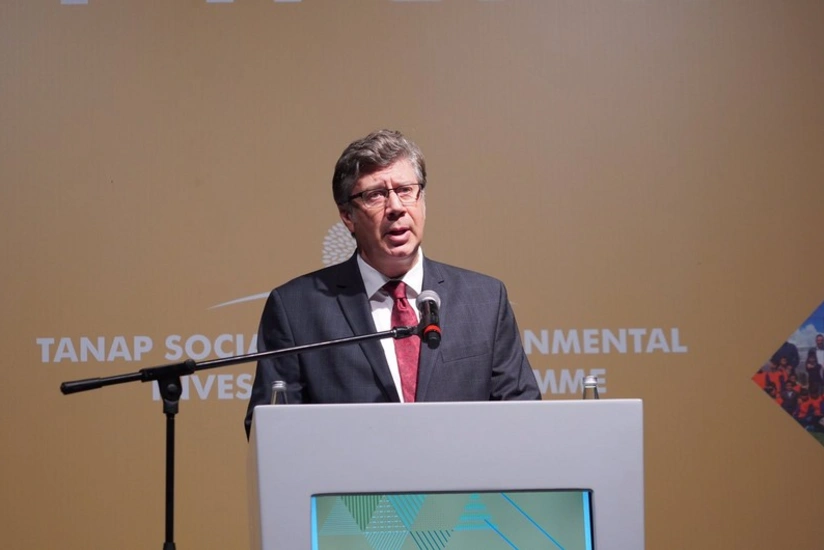TANAP considering options for expanding pipeline’s capacity
- 05 June, 2024
- 07:11

The TANAP Natural Gas Transmission Company (the operator of the construction and operation of the Trans-Anatolian Natural Gas Pipeline, TANAP) is considering seven options for expanding the capacity of this pipeline, Director-General of the TANAP consortium, Saltuk Duzyol, told Report.
“We are considering several options for expanding the capacity of the TANAP. A total of seven scenarios are being studied, implying expansion to various volumes. There is no investment decision on expanding the pipeline yet, and the TANAP consortium cannot make it alone,” he said.
Duzyol noted that the decision to increase the capacity of the gas pipeline can be made if there is appropriate interest among European consumers and agreements with the pipeline owners and gas producers.
“However, Europe is not sending clear signals, in particular regarding gas demand. Long-term gas purchase agreements must be signed between Azerbaijan and European buyers, and transit agreements will need to be concluded to supply additional volumes via TANAP. Investment decision to increase volumes production must be accepted by the gas producer. All this takes time,” Duzyol added.
He emphasized that after the signing of these agreements, the volumes on which the decision to increase the pipeline’s capacity will be focused will be determined, and the project budget will also be clarified.
At the same time, the director-general noted that it would take an average of five years to increase the gas pipeline’s capacity to 31 billion cubic meters per year.
“Our main advantage is that the construction of a new pipeline will not be required, only the installation of additional compressor stations. Currently there are two compressor stations, but their number can be increased to six when TANAP is expanded to 31 billion cubic meters per year,” he said.
According to Duzyol, demand for gas in Europe has decreased, which pushes prices down and does not contribute to making investment decisions to increase production. In addition, the desire of most countries to decarbonize their economies and implement low-carbon solutions also has an impact.
“At the same time, we believe that there will be demand for gas, since it is the only environmentally friendly alternative for use in electricity production compared to coal or nuclear fuel,” he noted.
Duzyol also said that the gas pipeline's throughput capacity is 16.2 billion cubic meters of gas per year, of which 5.7 billion cubic meters are supplied to Türkiye, the remaining volumes to Europe.
According to SOCAR, as of May 1, 2024, 62 billion cubic meters were transported via TANAP.
TANAP originates on the border of Türkiye with Georgia and in the Ipsala region of Edirne province, at the Greek border, it is connected to the Trans Adriatic Pipeline (TAP), through which natural gas from Shah Deniz 2 is supplied to European countries.
The total length of the pipeline is 1,850 kilometers.
